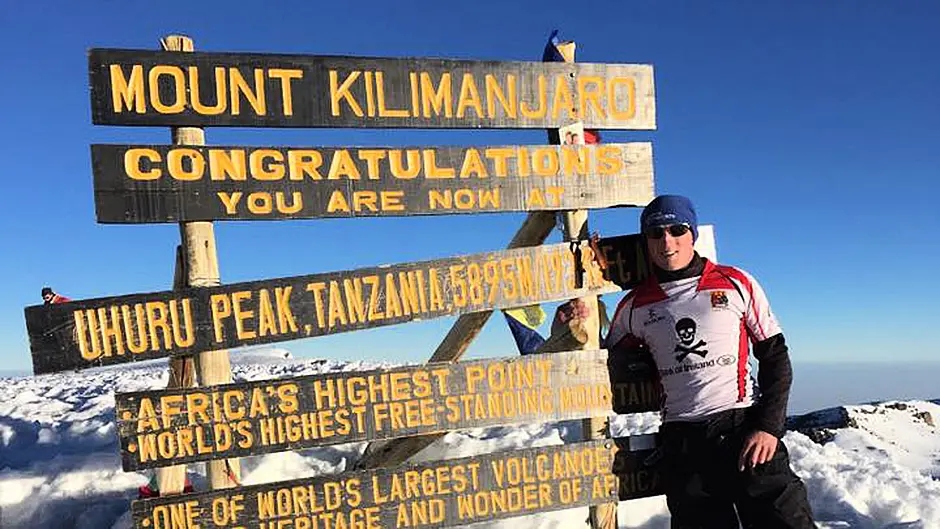A young and formerly fit Bantry trainee doctor says he’s lucky to be alive after being hit with post-Covid syndrome which attacked his heart, lungs and kidneys, he told Emma Connolly
TRAINEE doctor Owen O’Flynn – just 23 – unknowingly contracted Covid-19 in March, while working in Cork University Hospital (CUH).
His only symptom was loss of smell and taste which wasn’t a criteria for swabbing at that time.
However, the young Bantry man then fell seriously ill in mid-May with a post-Covid symdrome which left him struggling to breathe and genuinely fearing he was going to die.
And now he’s issuing a stark warning to others that being fit and healthy doesn’t offer any protection against the virus, and that it’s almost pot luck how your body will react to it.
Recalling his life-changing battle with Covid-19, Owen said the initial experience of losing his smell and taste lasted for seven to eight days.
While being a bizarre sensation, he was still able to continue working as normal on a general ward in CUH as part of his internship.
Then on a random Tuesday in May, after a day working in the hospital’s ICU, he developed mild tummy pain while at home cooking dinner.
‘That night I started spiking a fever of 39 degrees, it was enough for my bed to be soaking wet with sweat. I rang occupational health and I was advised to self-isolate and to organise a swab. I was sharing a house with one other medical student at the time so I just stayed in my room. On Wednesday, I started feeling sore everywhere, developed pain in my joints and muscles and even walking to the bathroom was a big effort.
‘My next symptom was a rash on my hands and the soles of my feet and on the Friday I started vomiting and couldn’t keep anything down. ‘By Saturday I had diarrhoea, fever, chills and was very unwell but I was still doing my best to stay out of hospital. By Sunday I was vomiting every hour but as my Covid test had returned negative on Thursday, I still felt that I had viral gastroenteritis, even though that did not explain my rash.’
Owen contacted a medical friend to bring him anti-nausea medication, and when he dropped them over he decided to get a lift with him to the emergency department at CUH where he was admitted on a Covid pathway.
‘At this stage, outside of the fever, I still felt quite well and really thought I’d be discharged after a few days,’ he said. A Covid swab on admission was returned negative, but tests at this point showed up strain on his heart which is now a known post-Covid condition. A lung test also revealed a rapidly progressive lesion which raised alarm bells and prompted a third test for Covid.
‘This was Tuesday and I was still feeling perfectly well, so to help pass the time I made a courtesy call to occupational health to ask about contract tracing and I suddenly became so out of breath that I barely made it to the end of the call.’
As is the case with many Covid patients, Owen rapidly deteriorated. Respiratory failure meant he couldn’t walk unaided, he was slipping between delirium and reality, because of fever, and he was feeling very frightened and emotional.
A hacking cough developed the next day and further tests showed even more strain on his heart.
‘Everything is 20/20 in hindsight,’ said Owen, explaining how at this stage the penny was beginning to drop that there was a link to his March symptoms.
Also at this point, there were reports emerging of a cluster of kids in the UK and Italy who had presented similar to Owen, and he was discussed at a national conference.
It was decided to carry out antibody testing at UCC which showed he’d had Covid-19, probably four to six weeks previously.
‘This was a new thing in ICU and there wasn’t any data on how to treat it. At this point my heart function was down to a quarter of what it should be, and I was very scared. I was crying, I really thought I might die.’
Thankfully, thanks to the excellent nursing and medical care he received, Owen is now back to full health but he’s fully aware how different his outcome could have been.
He spent all of May and half of June recuperating on his family farm, two miles outside Bantry. ‘I was profusely weak to start with, and couldn’t even walk the length of the ward without getting out of breath. I’m back at work since July but I have been told no strenuous exercise until Christmas.
‘Sometimes I don’t believe that all this happened to me or how lucky I was that I came out of it so well, because when it was happening, we never knew how sick I’d get, or if I’d improve.
‘I’d seen patients die from Covid and it’s very distressing. They go from being well to going downhill so fast and I knew that could easily have been me.’
Owen is now focussing on his ‘new lease of life’. ‘I’ve a new appreciation for family and friends, for nature and hiking and to experiencing life.’
However, the message he wants to hit home is that he was fit and healthy when the virus hit. ‘I cannot stress how well I was. I played three sports – hurling, football and rugby. I had volunteered in Africa and we climbed Kilimanjaro and I was the first one up. I had no underlying conditions, I was never in hospital, I had perfect school attendance. It’s pot luck, there’s no way of knowing how your body will react and what happened me was that my immune system over-reacted.
‘Be under no illusion that this can strike anyone, and very badly and we’re limited in what we can do, so follow all the advice and government regulations and keep your contacts down. I don’t know if I could end up in ICU again with this, and that’s something that really scares me.’
Owen will be sharing what he calls his ‘life-changing’ story at a National Covid Research and Scientific Meeting, a virtual conference for medical professionals and the public on the management of critically ill patients with Covid-19, this Saturday. The meeting will explore what happened, the learnings, the best treatments options and ethical issues surrounding the management of this new and challenging disease.
He also wishes to thank the people of West Cork for their prayers and good wishes, which he said really helped him when he came out of hospital.









